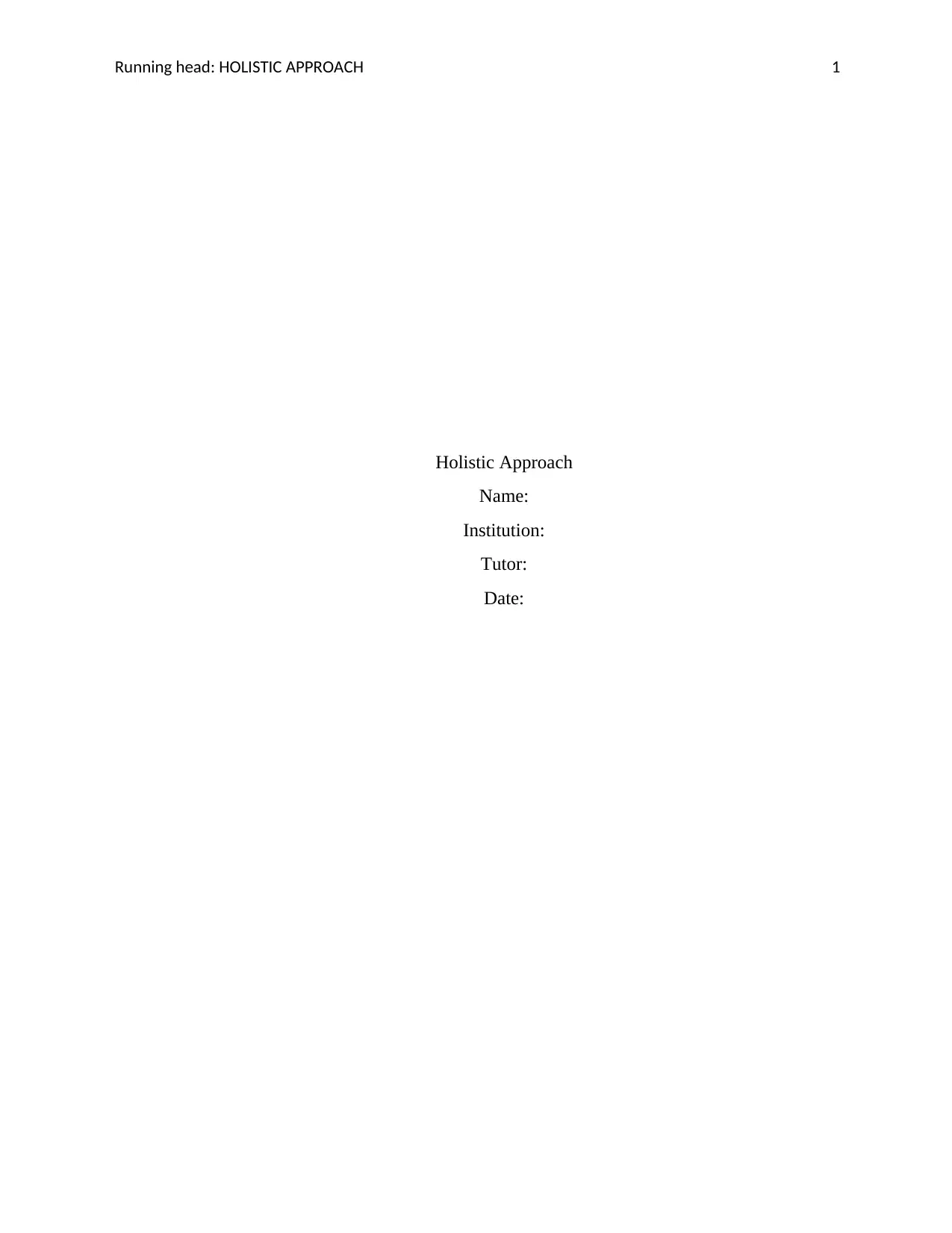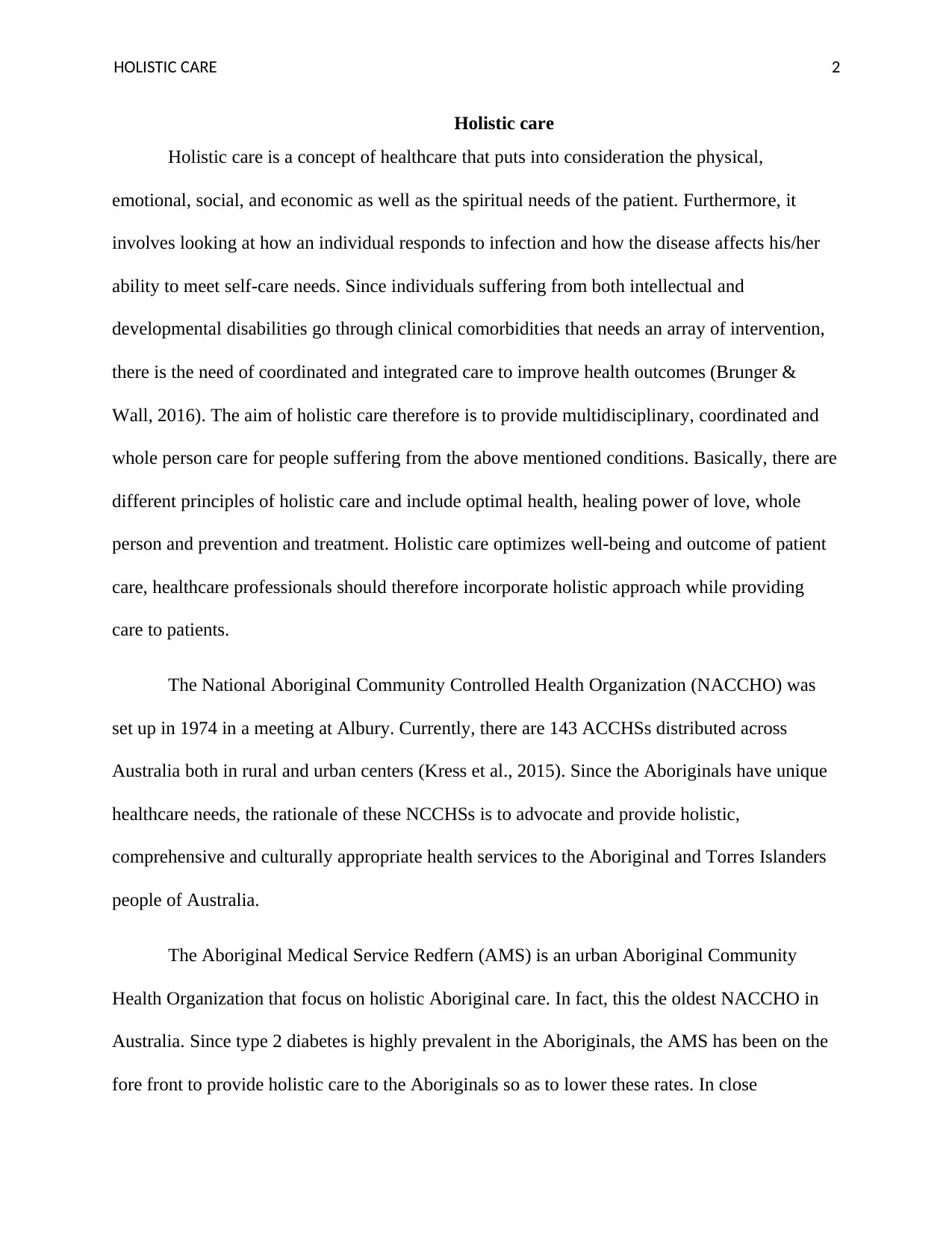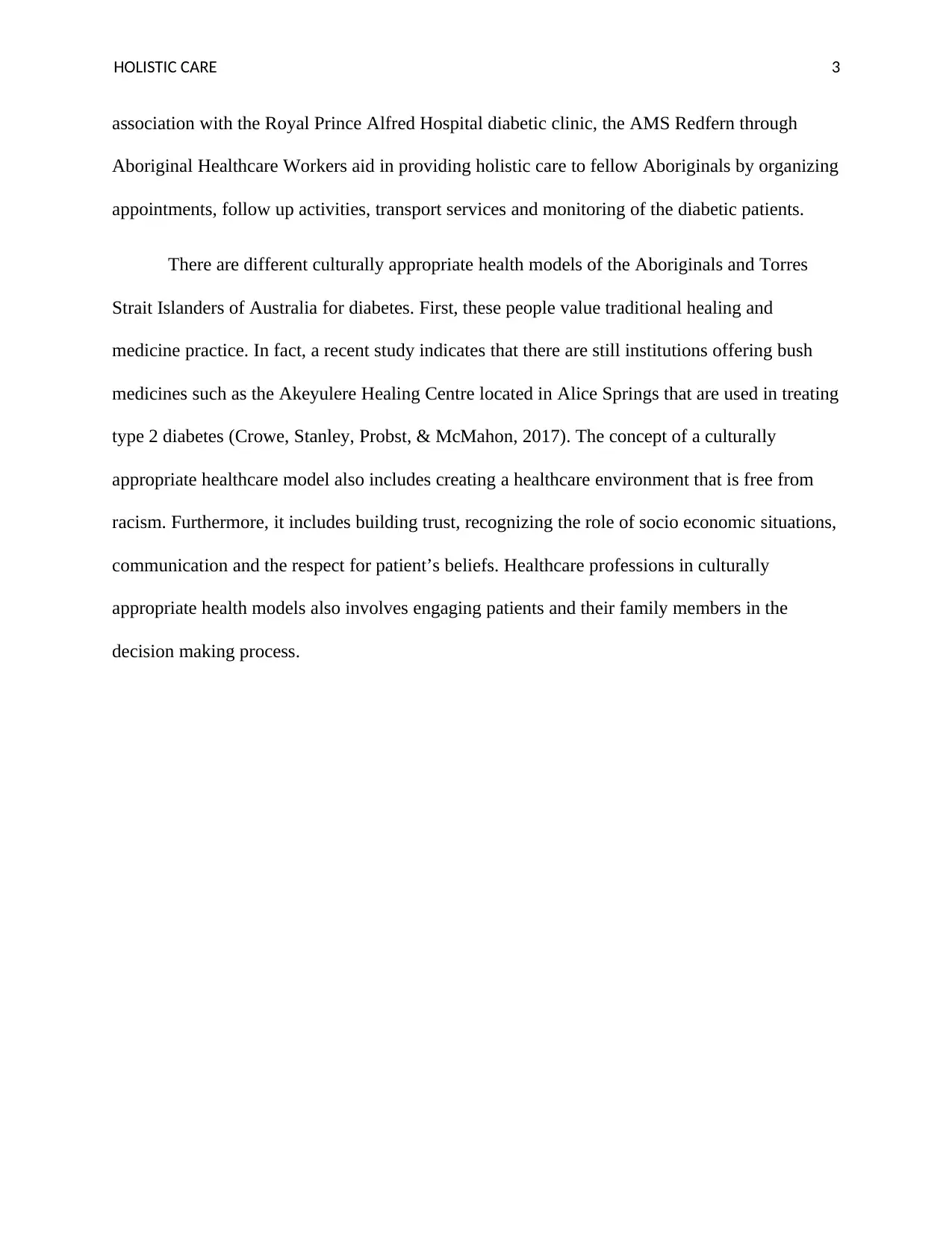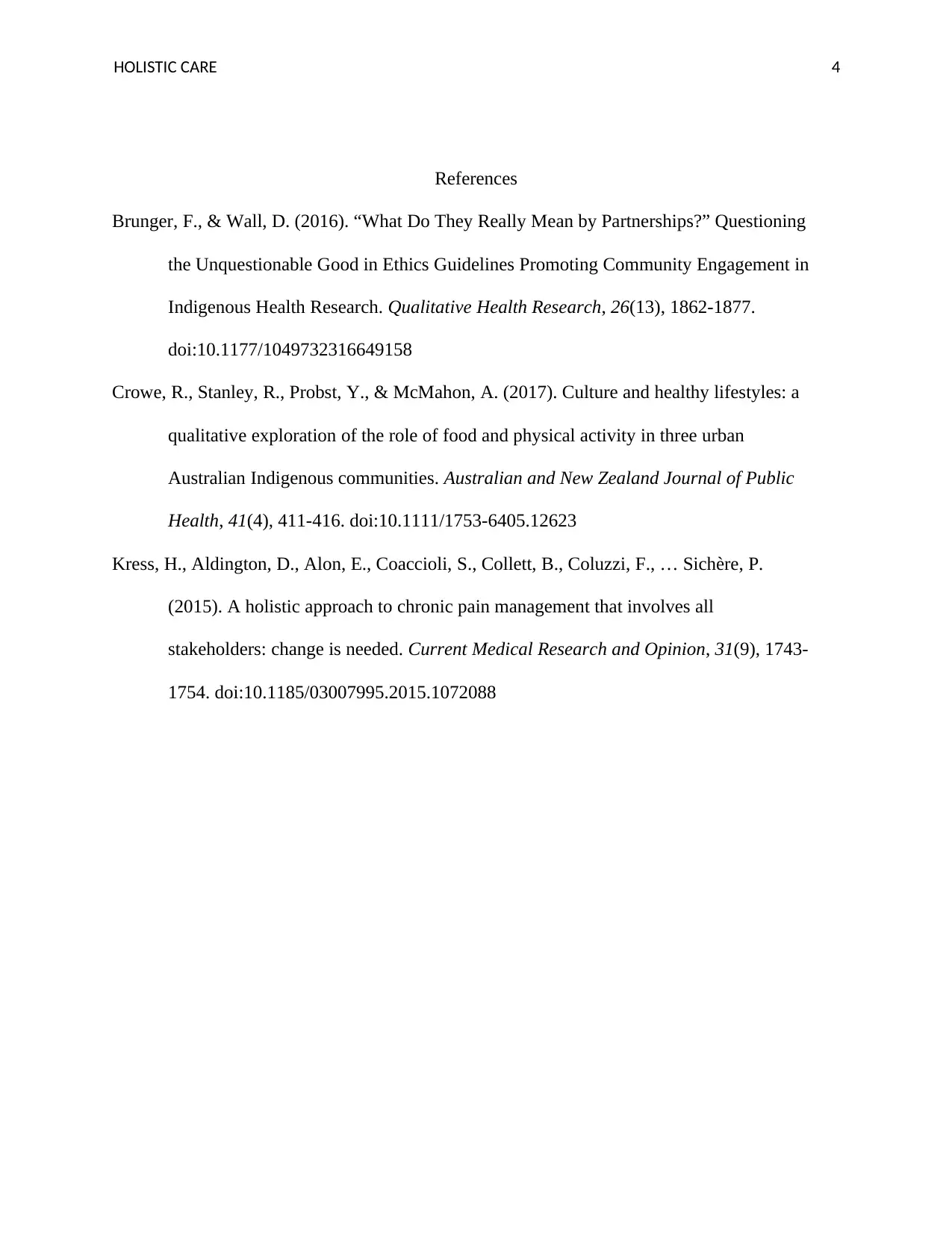Holistic Care: Addressing Health Needs of Aboriginal Communities
VerifiedAdded on 2023/03/17
|4
|697
|85
Report
AI Summary
This report delves into the concept of holistic care, emphasizing its importance in addressing the physical, emotional, social, and spiritual needs of patients, especially those with intellectual and developmental disabilities. It highlights the principles of holistic care, including optimal health, the healing power of love, whole-person care, and prevention and treatment. The report focuses on the National Aboriginal Community Controlled Health Organization (NACCHO) and the Aboriginal Medical Service Redfern (AMS), showcasing how these organizations provide culturally appropriate and comprehensive health services to Aboriginal and Torres Strait Islander peoples. It examines the AMS's approach to managing type 2 diabetes, the prevalence of which is high in this population, and the integration of traditional healing practices. The report also discusses the importance of creating a healthcare environment free from racism, building trust, and involving patients and their families in decision-making. The report concludes with a discussion of the importance of holistic care models in improving health outcomes for Aboriginal communities.
1 out of 4











![[object Object]](/_next/static/media/star-bottom.7253800d.svg)